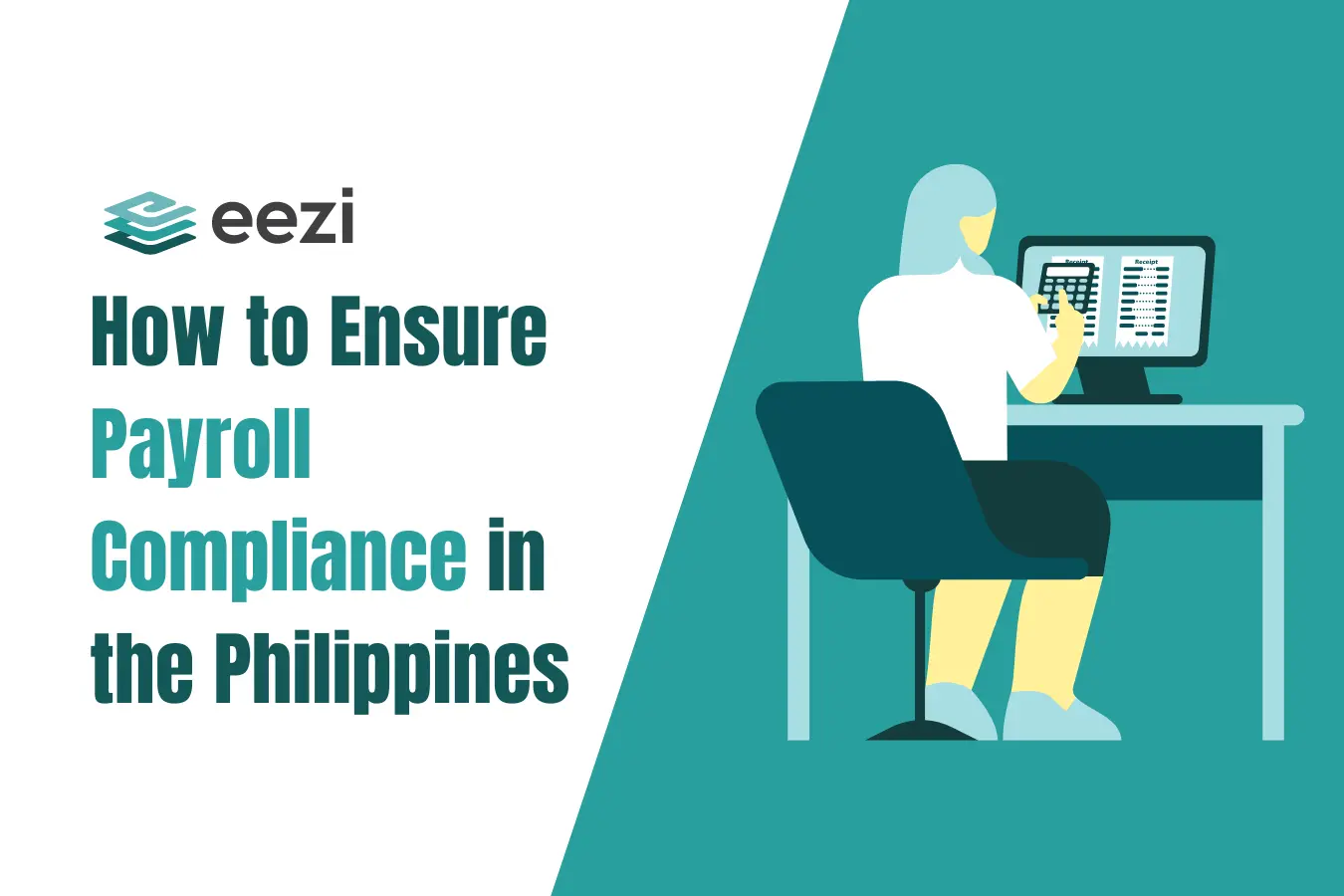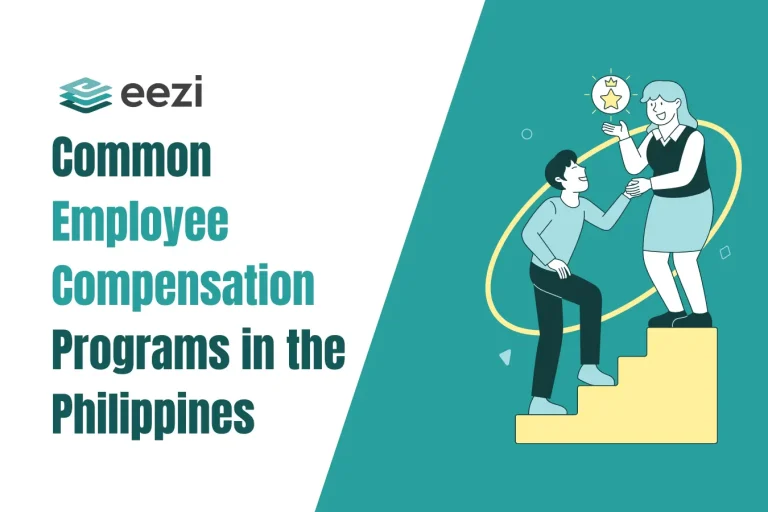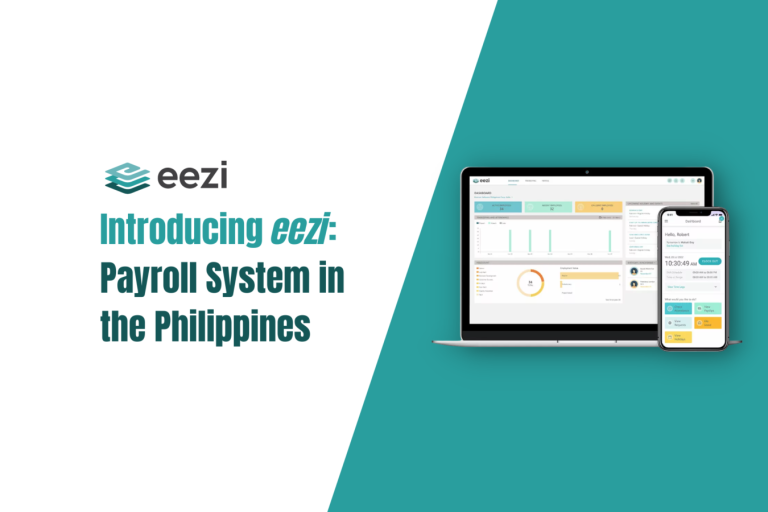
Payroll compliance is an essential aspect of running a business in the Philippines. Strict labor laws and regulations make it critical for employers to navigate the complexities of payroll processing to avoid legal issues and ensure smooth operations.
But why is payroll compliance important? For starters, businesses with non-compliant payrolls face the risk of government agency audits, penalties, fines, interest, legal fees, and even a decline in employee morale.
These risks may also arise from failing to pay employees on time, filing payroll taxes incorrectly or late, and maintaining incomplete payroll records.
Payroll compliance can be challenging but also essential to the success of any company, regardless of size.
In this guide, we’ll explain the importance of payroll compliance and the key steps to guaranteeing it in the Philippines.

What are the payroll rules in the Philippines?
In the Philippines, payroll rules can be complicated, particularly for new businesses. The following are the main payroll rules that employers have to comply with in the Philippines.
Minimum wage rates
The Philippines has different minimum wage rates for different industries and regions. As such, employers must follow these minimum wage earners’ pay rates set by the Department of Labor and Employment (DOLE) for each area. Furthermore, specific sectors of the economy could have different minimum wage rates from the sectoral wage boards.
Contributions to the Social Security System (SSS)
Employers in the Philippines are obligated to contribute to the Social Security System (SSS), which offers workers social security benefits. The employee and employer split the monthly payment rate of the SSS contributions, which is determined by the employee’s monthly pay.
Contributions to Pag-IBIG Funds
The Pag-IBIG Fund, which offers housing and provident benefits to workers in the Philippines, requires employers to make contributions. The employee and employer split the monthly payment rate, which is determined by the employee’s monthly pay.
Contributions to PhilHealth
Companies must also pay into the Philippine Health Insurance Corporation (PhilHealth), which offers health insurance to employees in the country. The employee and employer split the monthly payment rate, which is determined by the employee’s monthly pay.
Overtime pay
Overtime pay is offered to employees who work more hours than their regular schedule. The Philippines Labor Code states that on regular days, overtime pay is equal to 125% of the usual hourly rate; on special non-working days and rest days, it is equal to 130%.
Withholding tax
Employers must take the appropriate amount of income tax and withhold it from their employees’ paychecks, then submit it to the Bureau of Internal Revenue (BIR) every month. Depending on the employee’s taxable income, the withholding tax rate is subject to several deductions and exclusions.
Labor laws
The Labor Code of the Philippines establishes labor standards that employers must abide by. These standards cover rules for working hours, holidays, rest times, leaves, and other labor-related issues.
Related: How to find an employer or record in the Philippines
What is the payroll process in the Philippines?
The following are the five steps in the payroll process:
- Collecting employee data: The first stage is ensuring employees’ data is accurate and correct for simpler tracking and encoding.
- Determining and estimating net pay: The employer must now determine the employee’s net pay by computing the deductions and withholdings in addition to the employee’s wage.
- Releasing of payroll: Payroll release is the employees’ favorite part right now. Employee salaries must be directly deposited or transferred by employers to the appropriate bank accounts.
- Tax reporting: In order to properly comply with the government agency, the person handling payroll must now report the taxes to the BIR.
- Company filling: To prevent future conflicts, the employer must file the benefits, taxes, and deductions accurately.
Is a pay slip mandatory in the Philippines?
Each employee is entitled to a payslip that details their earnings, including the amount they are paid, the number of hours they worked, and any deductions. Payslips are available in both printed and digital formats.
DOLE states that all workers have a right to payslips from their employers, regardless of their employment status (casual or regular), job title, or pay rate. This will serve as documentation of their pay and indicate whether their employers are paying them fairly.
Businesses that fail to provide their employees with payslips are at risk of being charged with violating labor laws.
Every payslip must include the following details:
- The period for payment
- The hourly, daily, weekly, or monthly pay rate
- The amount due for ongoing work
- The amount due for additional work
- Deductions from the worker’s salary
- Actual sum paid
What are the payroll deductions in the Philippines
In the Philippines, employers must follow various local payroll compliance laws. The law requires them to deduct four main statutory contributions from their workers’ salaries: income tax, social security, health insurance, and the Home Development Mutual Fund (HDMF).
Social security
The Social Security System (SSS) in the Philippines is an insurance system that covers workers from financial burdens associated with illness, old age, disability, and other misfortunes. There is a cap of 1,900 for businesses and 900 for employees on the monthly contribution rate, which is 9.5% for employers and 4.5% for workers.
Income tax
Philippine companies do not pay income taxes on behalf of their employees. However, the BIR requires them to act as the withholding agent by deducting income taxes from the workers’ monthly paychecks.
Six taxable compensation income brackets make up the progressive income tax in the Philippines:
- 0% from ₱0 to ₱250,000
- 15% from ₱250,001 to ₱400,000
- 20% from ₱400,001 to ₱800,000.
- 25% from ₱800,001 to ₱2,000,000
- 30% from ₱2,000,001 to ₱8,000,00
- 35% from more than ₱8,000,000
PhilHealth or Philippine Health Insurance Corporation
In the Philippines, employers contribute to PhilHealth, the state health insurance fund. With an income cap of ₱80,000, the total contribution rate is 4% of the employee’s basic monthly compensation. The employee and employer divide the contribution equally.
HDMF or Home Development Mutual Fund
The Pag-IBIG Fund, also called the Home Development Mutual Fund (HDMF), is a government-guaranteed savings fund for Filipino workers. Its main objective is to assist workers in financing the purchase of a new home.
Employees can apply for low-interest home finance loans from the HDMF, which have low monthly amortizations and repayment lengths of up to 30 years.
Additional benefits provided by the HDMF to eligible employees include multipurpose loans and the option to use their Total Accumulated Value (TAC) after 20 years.
Ways to ensure payroll compliance in the Philippines
For businesses to adhere to labor laws and rules, payroll compliance is essential in the Philippines. Financial penalties and legal problems may arise from noncompliance. The following steps are crucial for ensuring payroll compliance:
Stay updated with the labor laws
Keep yourself and your payroll personnel regularly informed on the Philippines’ most recent labor rules and regulations. The National Health Insurance Act, the Labor Code, the Social Security Act, and the Tax Code are essential pieces of legislation.
Keep updated on any changes to applicable legislation, tax rules, and minimum wage rates.
Classify your workers correctly.
Correctly categorize employees as regular, casual, or contractual workers based on their employment contracts and the nature of their jobs. Benefits and rights vary between categories.
Consider a standardized payroll software system.
Use a trustworthy and relevant payroll software system to ensure precise automation of computations and deductions. Ensure that the system can handle statutory deductions, tax computations, and other payroll-related tasks.
Observe minimum wage regulations.
Give workers at least the minimum wage determined by your area’s productivity and wage tripartite boards. Track any changes or revisions to the minimum wage amounts.
Accurately deduct and remit taxes.
Deduct the appropriate income tax, as determined by the Internal Revenue Service (BIR). Make sure the BIR receives tax deductions on time. Give workers the required tax documentation, including BIR Form 2316.
Comply with the SSS contributions.
Employers and employees must pay their contributions to the SSS regularly. Learn about the SSS contribution schedule and ensure payments are on time.
Comply with the Pag-IBIG and PhilHealth
Employers and employees must contribute to the Pag-IBIG Fund and the Philippine Health Insurance Corporation (PhilHealth).
Holiday pay and overtime
Compute and pay overtime for work completed outside of usual business hours. Pay extra for work completed on holidays. For these computations, adhere to the Labor Code’s standards.
Compliance with 13th-month pay
Ensure workers get paid for the thirteenth month as required by law. During the calendar year, the payment must equal one-twelfth of the employee’s total basic wage.
Keeping records
Keep up-to-date and well-organized payroll records, including pay slips, attendance and time records, and proof of any required deductions. Keep these documents for the legally mandated amount of time.
Audit and review regularly
Perform routine internal audits to guarantee payroll compliance. Examine payroll procedures, supporting materials, and computations to find and fix any mistakes or inconsistencies.
eezi HR Guide
Learn the efficient ways to set up your HR department.
How to set up payroll in the Philippines
Payroll compliance requires employers to become knowledgeable about labor and tax rules in the Philippines before hiring employees. Here’s how to set up payroll in the Philippines:
- Register your business as an employer. In order to obtain an employer identification number (EIN), register your business with the Internal Revenue Bureau (BIR). Local authorities can verify that you correctly calculate and pay required taxes and contributions with the assistance of your EIN.
- Establish the policies and procedures for your payroll. Create a payroll schedule that specifies the frequency of your final tax remittances and wage payments, as well as your policies regarding employee timekeeping, payroll tax computation, and payment procedures.
- Establish employees’ salaries and ensure compliance. Determine the salary you will pay employees by taking into account their position and the cost of living in the area. Precisely withhold and contribute to income tax, SSS, PhilHealth, HDMF, and any other needs, such as holiday and 13th-month pay.
- Compile timesheets and do payroll computations. Compile and examine employee timesheets, determine payroll withholdings and statutory taxes, and send payments to the appropriate government agency.
- Pay employees. Pay employees according to the timeline you’ve set up. Make sure their overtime work and other allowances or benefits are entered correctly.
- Document and keep payroll records. The Philippine Labor Code requires employers to keep employment records on file for three years. Payroll records should include employee employment dates, frequency of payments, total overtime compensation income, deductions, and net wage.
Take Away
Ensuring payroll compliance in the Philippines requires a comprehensive understanding of labor laws and meticulous attention to detail. By staying informed and maintaining accurate records, businesses can successfully navigate the complexities of payroll processing, fostering a positive working environment and avoiding legal complications.
Stay compliant with eezi: Simplify Payroll Management Today!
Are you struggling with payroll compliance? Don’t worry! eezi payroll system makes sure that your workers in the Philippines receive their pay on time, in compliance with local regulations, and with all benefits that are due to them.
Explore how eezi can make HR easy with its configuration options.



